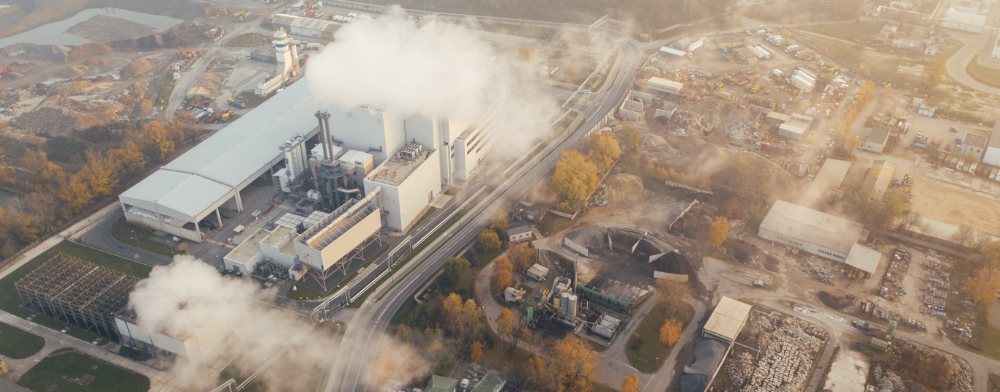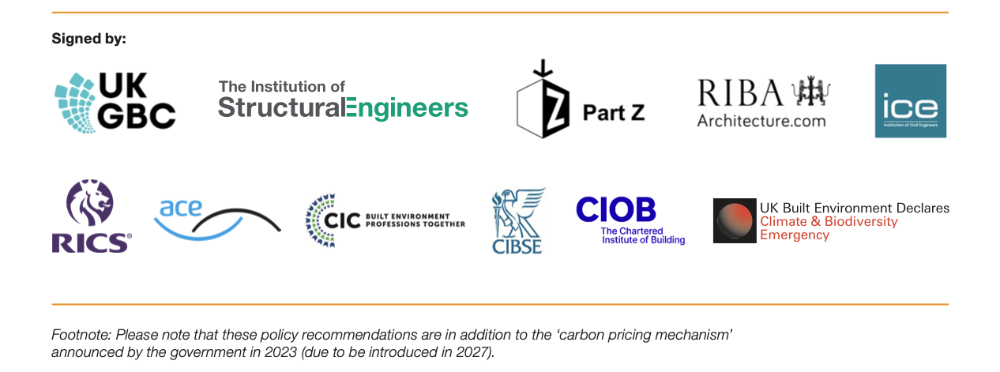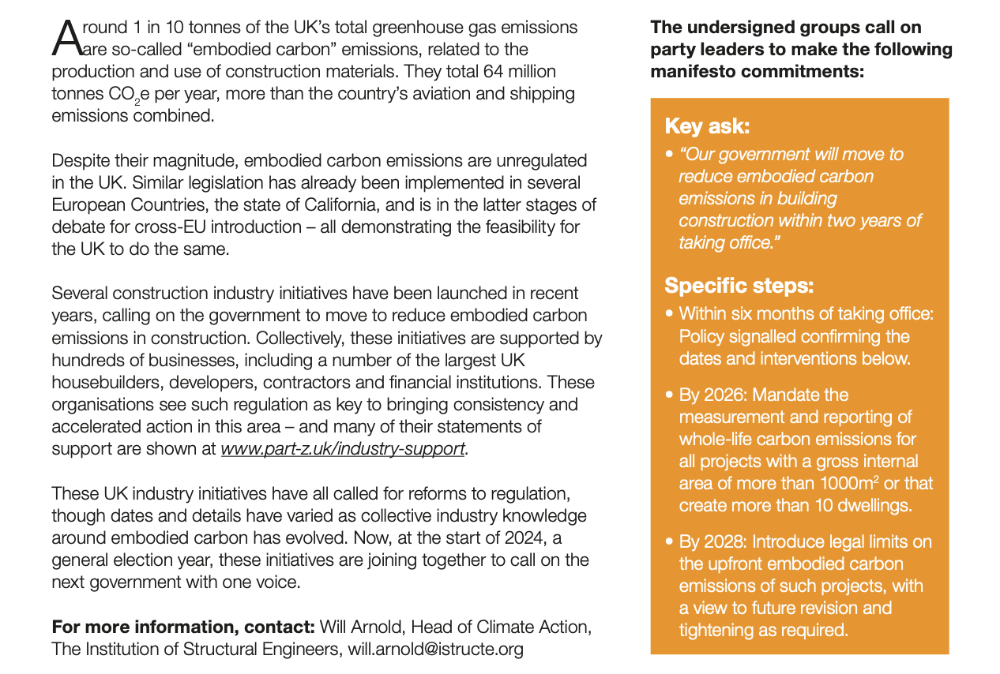CIOB joins forces to urge Government to regulate embodied carbon
CIOB has joined leading organisations to warn political leaders about the urgent need for regulation of embodied carbon emissions in construction.
The Chartered Institute of Building (CIOB) has teamed up with 10 leading organisations to warn political leaders about the urgent need for regulation of embodied carbon emissions in construction.
Environment experts from CIOB, UK Green Building Council, The Institution of Structural Engineers, the Institution of Civil Engineers, Construction Industry Council, Chartered Institution of Building Services Engineers, UK Architects Declare, RIBA, RICS, Association for Consultancy and Engineering and Part Z have all joined forces to send a clear message to Government.
They warn regulation is necessary because buildings and construction form a substantial part of UK carbon emissions, which are a main driver of climate change. The group believes UK policy has stalled and urgent action is needed.
Amanda Williams, Head of Environmental Sustainability at CIOB, said: “There have been numerous industry initiatives over recent years, calling for government action to reduce the construction industry’s embodied carbon emissions.
“We now join forces as an expert group to pull these proposals together, uniting with one voice for change and asking Government to ensure the UK keeps pace with those who are currently leading this agenda.”
The group of experts has issued a paper to political leaders with a key ask: to include in their manifestoes a commitment to move to reduce embodied carbon emissions in construction within two years of starting government.
Steps for action include:
- In 2024: Policy signalled to confirm the dates and interventions below.
- By 2026: Mandate the measurement and reporting of whole-life carbon emissions for all projects with a gross internal area of more than 1000m2 or that create more than 10 dwellings.
- By 2028: Introduce legal limits on the upfront embodied carbon emissions [those emissions due to the use of materials in the initial construction] of such projects, with a view to future revision and tightening as required.
The group says these actions are essential as around one in 10 tonnes of the UK’s total greenhouse gas emissions are “embodied carbon” emissions. These relate to the production and use of construction materials, which account for a substantial part of the UK’s overall carbon emissions.
Policy recommendations would be complementary to the ‘carbon pricing mechanism’ announced by the government in 2023 and which is due to be introduced in 2027, as well as to existing UK initiatives that incentivise the use of lower carbon cement and steel.
This article appears on the CIOB news and blog site as "CIOB joins forces to urge Government to regulate embodied carbon" dated January 31, 2024.
--CIOB
[edit] Related articles on Designing Buildings
- An in-depth look at Environmental Product Declarations EPDs.
- BPIE report urges EU to incorporate the carbon footprint of construction into policy.
- BS EN 15978-1.
- BSRIA Whitepaper on Embodied Carbon NZG 4/2023
- Carbon dioxide.
- Carbon footprint.
- Climate change act.
- Climate change science.
- Climate Emergency Design Guide.
- Cradle to grave.
- Dr. Natasha Watson; UK lead for embodied carbon at Buro Happold.
- Embedded carbon emissions.
- Embodied carbon.
- Embodied energy.
- EN 15804+A1 2012.
- Environmental product declaration EPD.
- Greenhouse gas.
- Life Cycle Carbon Emissions.
- Mandatory and optional environmental impact categories.
- Optional environmental impact categories.
- PHribbon tool calculates embodied carbon of designs.
- Product Environmental Footprint PEF.
- Product category rules PCR.
- RICS launches new global edition of its ground-breaking Whole Life Carbon Assessment standard.
- Sustainable procurement.
- Sustainability in building design and construction.
- The sustainability of construction works.
- Upfront emissions.
- Use stage embodied carbon.
- Wood, embodied carbon and operational carbon.
- Whole life carbon.
Featured articles and news
Infrastructure that connect the physical and digital domains.
Harnessing robotics and AI in challenging environments
The key to nuclear decommissioning and fusion engineering.
BSRIA announces Lisa Ashworth as new CEO
Tasked with furthering BSRIA’s impressive growth ambitions.
Public buildings get half a million energy efficiency boost
£557 million to switch to cleaner heating and save on energy.
CIOB launches pre-election manifesto
Outlining potential future policies for the next government.
Grenfell Tower Inquiry announcement
Phase 2 hearings come to a close and the final report due in September.
Progress from Parts L, F and O: A whitepaper, one year on.
A replicated study to understand the opinion of practitioners.
ECA announces new president 2024
Electrical engineer and business leader Stuart Smith.
A distinct type of countryside that should be celebrated.
Should Part O be extended to existing buildings?
EAC brands heatwave adaptation a missed opportunity.
Definition of Statutory in workplace and facilities management
Established by IWFM, BESA, CIBSE and BSRIA.
Tackling the transition from traditional heating systems
59% lack the necessary information and confidence to switch.
The general election and the construction industry
As PM, Rishi Sunak announces July 4 date for an election.
Eco apprenticeships continue help grow green workforce
A year after being recognised at the King's coronation.
Permitted development rights for agricultural buildings
The changes coming into effect as of May 21, 2024.


























